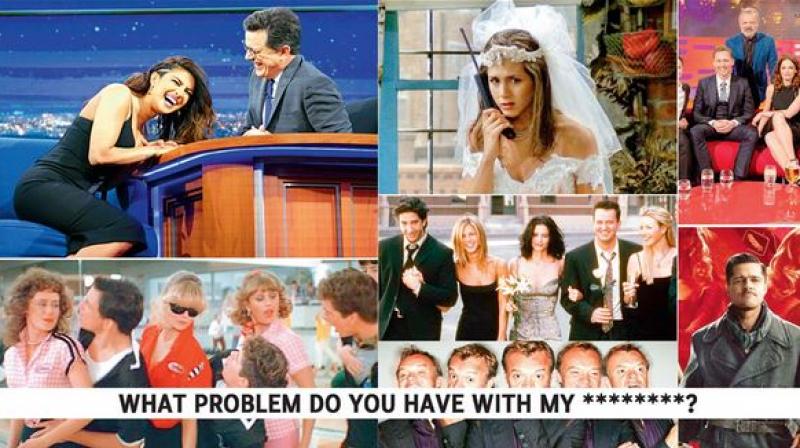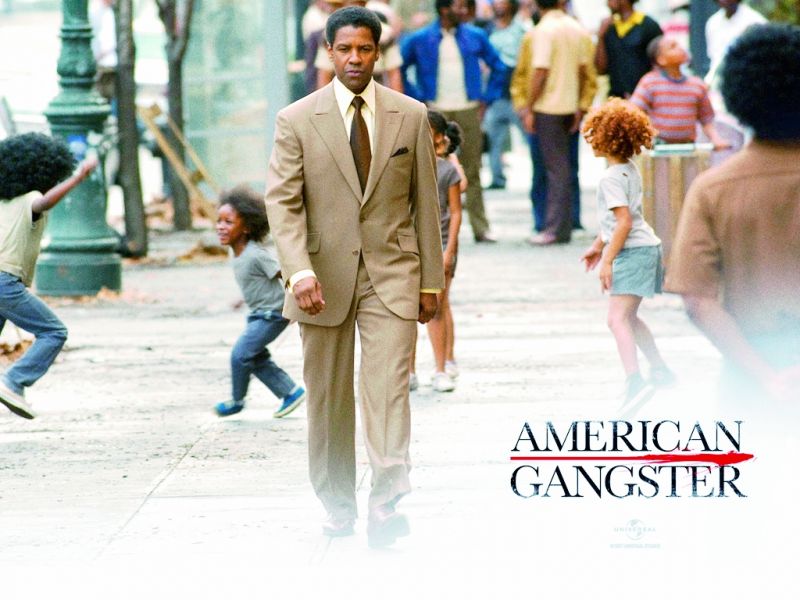The X men of telly

It was a perfect Sunday afternoon, popcorn in hand, cushioned, we sat for a filmathon — a gangsta film, chick-flick and drama, much to our chagrin, there was silence, intermittent and beeped out, though! Scenes cut, dialogues beeped, with “XXXXX” running riot. An idealist might ask if the story comes mowed down with beeps, blanks, cuts and crucial parts missing, then what might be the point? Especially since the Internet is the new idiot box of the Net savvy, thanks to online streaming providers. Yet, the nature of the beast is universal, reaches living rooms of a mammoth country, watched by pesky 10-year-olds, influenceable teens and tight-lipped adults. Argue about creative license and the essence being lost while watching a beeped off serial or film (in an urban context), be it odd pauses or cuts that might leave nothing to the imagination, or even leave one bemused as to how silencing the word “condom” or “gay” or “buttocks” is progress, all in the name of protecting sensibilities. There lies at the other end of this telly juggernaut, superstition-ridden, myth purporting shows on regional channels every day.
A sense of caution is, of course, apt given the nature of TV, and being socially responsible. Yet, some examples of self-censorship border on ridiculous. Are we living in a nanny state? Private channels under the aegis of the BCCC, which controls content and complaints, have strict guidelines from the Information and Broadcasting Ministry overseeing such matters, to “self-regulate” content before the I and B weighs down with fines, blackouts, etc. In effect, self-censorship has come of age. And out went an individual’s right to unaltered content. While channels need to protect themselves, this overprotection, and deciding for an individual, means that content is for anyone to spike. Yes, silence is what we have become used to, lest scientific discussion and truth empower people. When Grease 2 was aired, its song, Reproduction was cut. Jurassic Park’s subtitles, had the innocent T-Rex blanked out… Confused? Further adding insult to educated injury are words like “Wenus” in Friends, butt, fondle, all “X” men on the telly. While it is paramount for channels to take into account sensibilities of a conservative and rational middle class and rural populace, the definition of explicit, radically-forward content is skewed. Malayalam filmmaker and cartoonist K.P. Sasi feels that the ordinary Indian is more progressive than we think. The idea might be to protect creativity and be responsible in a country that shows angst when sentiments are hurt. Thus, private channels tread carefully or are put on the guillotine.
A filmmaker whose work, the state has always tried unsuccessfully to censor, with documentary films like Bombay: Our City/Hamara Shahar (1985), In the Name of God/Ram ke Nam (1992), etc., Anand Patwardhan feels, “I do agree that there is too much gratuitous violence both in cinema and on TV. Every night, there is a wide choice of horror and Rambo machismo. While censorship is not the answer, developing a healthier sensibility and taste, is. I, personally, do not have any problem with sexuality if it is not sexist, and does not objectify women. Sex must be discussed from an early age so that our children do not become vulnerable either to predators or to the moral brigade. Today, we are a sexually repressed society that creates rapists and lynch mobs. We will be much healthier if we allow individuals to become critical, rational thinkers.” Scientific debate is utmost necessary, but is grassroot India ready? Sociologist G.K. Karanth cautions, “Any public address needs to have responsibility, not merely hurting sentiment but what is said could have a seditious effect even if unintentional. In the Stephen Colbert Show, four letter words are used, but in the garb of responsibility, he cautions saying parental guidance is required. We have a responsibility of restraint, and this newfound freedom has not been scientifically explored enough.”
 Gangsta squad: A scene from American Gangster, a movie shown on a channel
Gangsta squad: A scene from American Gangster, a movie shown on a channel
Karanth also feels that one does not realise the moral impact of TV, “I am not a puritan, but regulation based on a scientific understanding is the need. I would ask what is the message? Today, experts gauge scientific impact and what research deems right. The concern about what is projected from a moral stand point, and gauging consequence — that part of research has not been done in a country that has a history of 20 years since the Asian Games were first shown on DD. Rather than a puritanistic society, we need to ask questions, as we have ourselves not made up our minds on what should be the yardstick.” International columnist Joel Stein, of Time Magazine, admits to not knowing too much on Indian censorship, he explains, “I too live in a country controlled by crazy religious people. And I too am confused by the rules of censorship. It’s totally okay to show all of a breast except a nipple! I get the effort to make clear rules. I don’t get people then morally adjusting and internalising the strict definition of those rules. People really get upset over nipples, but are totally cool with super sexualised imagery that is nipple free. I’m not a big believer in a paternalistic government that protects us from scary ideas. Even if those ideas are Grease 2 (Every single scene of it should be censored!) People in my country are easily influenceable too.”
How does it work?
The Standard and Practice department of a channel has the onus to censor, with the legal department guiding that process, so a single episode comes with a report of cuts, and the final master comes after innumerable censors. The dictum is clear — vulgar profanity, frontal nude, violence, nudity, disrespect to the national flag, anything that hurts religious sentiments are all sacrosanct NOs. Content related to women and children have stringent guidelines, which is appropriate. Depending upon target audience, shows, time slots, all change. This self-regulation identifies catch words, phrases, scenes and complaints. The catch words are put into a system, which recognise them to blank or beep as it is impossible to go though all content, in most cases. Many Hindi and regional channels take precautionary measures before the government breathes down.
Yet, when the moral brigade steps in (or the political) and gay is muted or beef and pork, or scenes are cut because they “might” be sexual or violent in nature (but are not), who bells this censorship cat? Sometimes the written word is also different from the spoken. What kind of TV are we watching that pays little heed to the true essence, and instead, is the Edward Scissorhands of the entertainment industry?
While the urban and rural mindset are two ends of a diverse spectrum, the need to identify scientifically, instead of blanking out on “word” and “picture” jumbles, is tantamount to progress. Patwardhan calls himself a secular humanist and believes that for real progress, rational thinking must be nurtured, he remarks, “While I have never seen any official television censorship rules, I fought two court cases against the censor board (CBFC) and seven cases against Doordarshan for refusing to telecast my films. We won them all. For over 40 years, my films have been criticised by various governments and right-wing fundamentalists. These films never diverged from the spirit of the Indian Constitution. But obviously, governments and fundamentalist groups that violate our secular democracy every day, have problems with the films. The result is a colossal waste of time and money.”
Patwardhan further laments, “The real irony is that while TV has a regulatory body that cracks down on sex, violence and political criticism, it seems totally relaxed about programmes that promote superstition, religious propaganda and irrational thinking. Vastu Shastra, astrology and endless doses of ‘guru wisdom’ is administered on TV instead of promoting a scientific outlook as promised by our Constitution. Not just the actual TV programmes, ads also reflect the same illness. Fairness creams and ridiculous cosmetic and fastfood fads are promoted instead of ideas that could bring real health and well-being. So while I want the existing forms of censorship to go, I would like to see a pro-active approach to promoting rational and scientific thought, which of course means allowing critical thought, and debates on all kinds of things including those that are considered taboo.”
 Anand Patwardhan’s documentary 1991 Raam Ke Naam, was banned and the filmmaker has fought battles in court for virtually all his films, which he has won too.
Anand Patwardhan’s documentary 1991 Raam Ke Naam, was banned and the filmmaker has fought battles in court for virtually all his films, which he has won too.
Chilling effect
A noted lawyer worries about the “chilling effect,” where the fear of repercussion restricts what is aired, to even inane references that should ideally not be blanked. For instance, in the Middle East, “breast” is banned. A region where breast cancer incidence is high, a Saudi woman is thus unable to access information on breast cancer. Imagine the enormity of blanking words as a rule of thumb? Who are we protecting? The futility of censorship which uses catch words is obstructionalist and regressive, many feel. Karanth also stresses that the strongest message in TV and films is clichéd and we need to ask where those templates (how a man relates to a woman) came from, and go back to its origin. “This is not for a Hindutva-led or religiosity-led monitoring but a scientific research-based backward censoring,” he feels. From disclaimers on shows after 10 pm, The Week That Was, Late Night Shows all should have tickers saying “we do not subscribe to the views” or superimposed messages to caution adults, children on stamps of disapproval or approval, which Karanth feels, is better than cuts and blanks.
Patwardhan is vocal about the importance of freedom of speech, “It is not the people but the censor board that is backward. In a way, I am glad that CBFC chief Pahlaj Nihalani is so ridiculous that he gives the censor board a bad name. The truth is that ordinary people have more sense and humanity than the CBFC or the government. Our current government does not tolerate alternate points of view but even earlier ones were squeamish. When we argued in court that my films should be screened on TV, we also suggested that Doordarshan should have a panel discussion with opposing viewpoints to discuss each film.” Vocal about sentiments, with a politics that takes undue advantage of issues, the need for a balance between truth and sensibility is a tough task. The harsh truth lies somewhere within the emotional and sensitive mindset of a people, and how present powers piggyback on it for their own ends.
 Fighting for a cause: Bombay our city, a film directed by Anand Patwardhan
Fighting for a cause: Bombay our city, a film directed by Anand Patwardhan
The ratings system?
Activist and actress Kalki Koechlin knows little about TV censorship, she says, “There has been a lot of fight over censorship and there seems evidence that it protects certain religious or cultural groups, women from derogatory terms. People are playing it safe and the objective is clear — not to upset any group. Today, the (film) censorship board has become a joke, since everyone has access to Internet. The censorship board is doing the job which the certification board should be doing. We need to push for certification.” Liberal activist and Goan designer Wendell Roderick stresses on a pro stance, “In the USA, as my hostess watched TV, what I saw was utterly disgusting. Programmes like The Bachelor/Bachelorette, Double Divas, Real Housewives of Hollywood, Chicago, etc. If I had my young nephews or nieces around, I would be most uncomfortable to have them watch these vulgar shows. These days, regrettably, are not for airing shows like I Love Lucy or the Sound of Music. I find even some Cartoon Network shows violent, unsuitable for developing minds. Films, unlike TV have ratings for appropriate viewing. TV is watched by everyone, and needs some form of censorship. I approve of television censorship as long it is seamlessly done, without resorting to beeps and blanks.” Which, unfortunately, is not the case.
As a medium whose reach surpasses boundaries, it is worrying that what we see (or don’t) is governed not by scientific debate, but by titillation of words or on a faulty premise of what it could show or mean. Filmmaker K.M. Chaitanya stresses, “In a democracy, it is important to give people the freedom of choice. With most Western countries having completely done away with the concept of censorship, and swapped it with ratings, we’re probably lagging. Also, the ridiculous instances of chopping words and phrases can be attributed to the fallacy in the electing system. With a change in governance, there’s a change in the censor board committee, which is more often than not, tainted by influences of the ruling parties. Do we change road rules or currency rules with every government change? Then, why target cinema (or TV)? Whether somebody takes offence by the term vagina or a penis, it’s the regressive mentality that needs to be nipped.”

